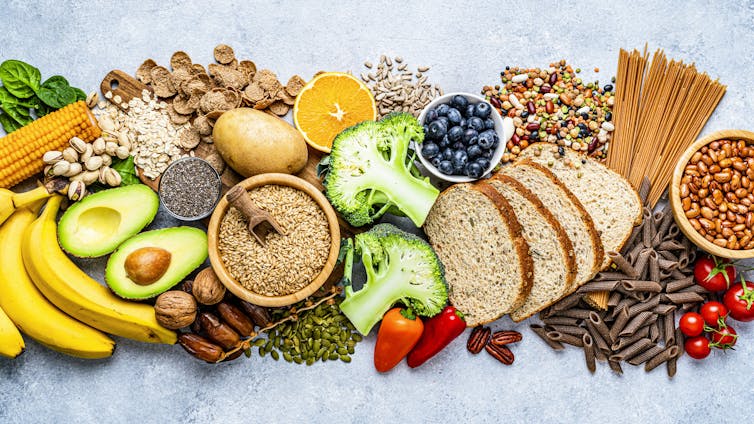How to improve sleep with diet is about making food choices that support your body’s natural sleep cycles. Nutrients like magnesium, tryptophan, and melatonin help regulate your circadian rhythm, calm the nervous system, and reduce nighttime restlessness. Eating balanced meals with complex carbohydrates, healthy fats, and lean proteins throughout the day ensures steady energy and minimizes late-night cravings. Foods such as almonds, kiwi, oats, and chamomile tea can naturally encourage deeper, more restorative rest. This guide explains which foods to eat, when to eat them, and how to create a sleep-friendly eating routine.

Why Diet Affects Sleep Quality
The body relies on specific nutrients to produce sleep-regulating hormones. Tryptophan, found in turkey, dairy, and seeds, is converted into serotonin and then melatonin, which signals the brain to sleep. Magnesium-rich foods like spinach and pumpkin seeds relax muscles and reduce stress hormone levels. Complex carbohydrates support the steady release of serotonin, while healthy fats maintain stable blood sugar overnight. On the other hand, heavy, sugary, or processed foods before bed can disrupt sleep by spiking blood sugar and increasing nighttime awakenings. Understanding how nutrition interacts with the sleep cycle helps you make daily food choices that improve rest.
Best Foods for Better Sleep
2.1 Almonds
Packed with magnesium and healthy fats, almonds relax muscles and stabilize heart rhythm.
2.2 Kiwi
A rich source of antioxidants and serotonin, kiwi improves sleep onset and duration.
2.3 Oats
High in melatonin and complex carbs, oats help signal the body to wind down.
2.4 Chamomile Tea
Contains apigenin, a compound that promotes relaxation and reduces mild insomnia.
2.5 Fatty Fish
Salmon and tuna provide vitamin D and omega-3s, which aid melatonin production.
Eating a variety of these foods in the evening can create a calming, sleep-supportive environment inside the body.

Evening Meal Strategies for Better Rest
Plan dinner to be light yet satisfying. Combine lean protein like chicken or tofu with complex carbs such as quinoa or sweet potatoes for steady nighttime energy. Include vegetables like spinach or broccoli for magnesium and antioxidants. Avoid caffeine after mid-afternoon and limit alcohol, as both interfere with deep sleep cycles. Adding a small evening snack—such as Greek yogurt with berries—can keep blood sugar stable overnight. Timing matters too; finish your last meal at least two hours before bed to allow proper digestion and prevent discomfort that can delay sleep.
Foods to Avoid for Healthy Sleep
Certain foods can interfere with natural sleep patterns. Spicy meals eaten late can cause heartburn and discomfort. Foods high in refined sugar, like pastries or candy, may trigger energy spikes followed by restless tossing. High-caffeine items, including coffee, energy drinks, and even dark chocolate, can delay melatonin release. Processed meats with high sodium levels may cause nighttime thirst and disrupted rest. Choosing whole, minimally processed foods during the day—and avoiding heavy, greasy options at night—helps maintain consistent hormone levels and promotes deeper, more restorative sleep.
Long-Term Dietary Habits for Sleep Health
Improving sleep with diet works best when practiced consistently. Eating balanced meals, staying hydrated, and including sleep-friendly foods daily supports long-term rest quality. Keeping a regular meal schedule aligns your circadian rhythm. Over time, your body learns to associate certain foods and eating patterns with relaxation, making it easier to fall asleep and stay asleep naturally.
